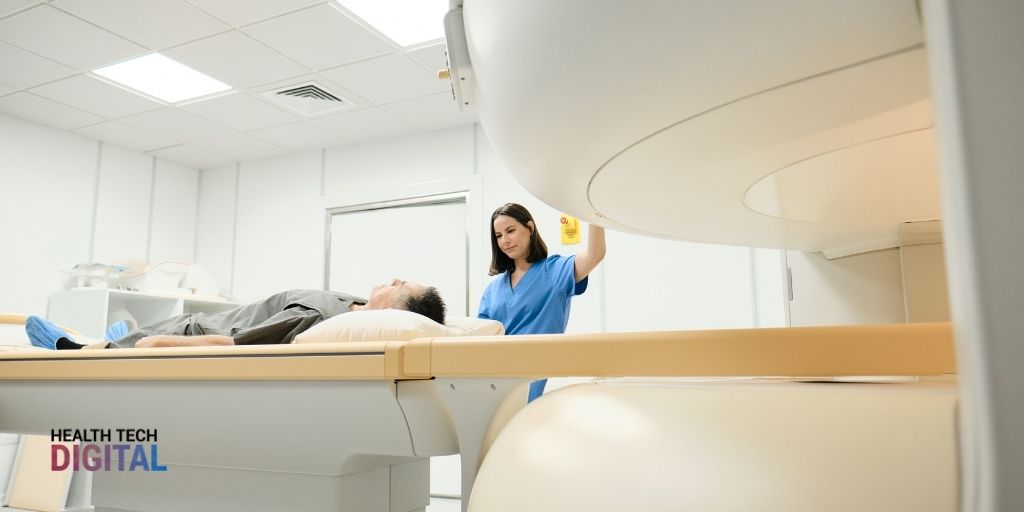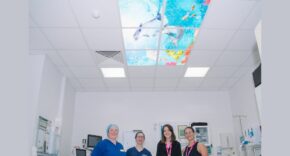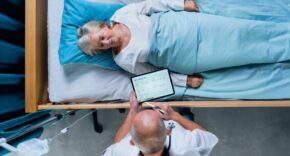
Thanks to a boost in funding for AI used across the NHS, patients will benefit from amazing technology that will help to diagnose diseases like cancer faster.
Imaging Artificial Intelligence and Digital Pathology centres will receive £50 million to increase the scale of work being done that improves the quality and speed with which deadly diseases are diagnosed. These centres were launched in 2018 and develop cutting-edge digital tools and are based in London, Leeds and Coventry and will deliver digital upgrades to imaging and pathology services across 38 NHS trusts which will benefit more than 26.5 million patients across Britain.
Radiology and other imaging services play a vital role in the diagnosis of diseases. The funding will help to accurately diagnose diseases and provide more specific treatments for patients. Not only will it save lives, it will free up time for clinicians who can then treat more patients.
Health and Social Care Secretary Matt Hancock said:
“Technology is a force for good in our fight against the deadliest diseases – it can transform and save lives through faster diagnosis, free up clinicians to spend time with their patients and make every pound in the NHS go further.
“I am determined we do all we can to save lives by spotting cancer sooner. Bringing the benefits of artificial intelligence to the frontline of our health service with this funding is another step in that mission. We can support doctors to improve the care we provide and make Britain a world-leader in this field.
“The NHS is open and I urge anyone who suspects they have symptoms to book an appointment with their GP as soon as possible to benefit from our excellent diagnostics and treatments.”
An update was provided by government on 29 August about how many cancer diagnostic machines were replaced since September 2019. This came after £200 million was given to replace CT scanners, MRI machines and breast scanning equipment.
75 more scanners have been ordered, 69 have been installed and are currently in use and 10 more are in the installation phase. The funding is part of the commitment by government to save more lives every year.
Throughout the pandemic, cancer treatment has been a priority and continues to be so. 45,000 more people came forward for cancer checks in June and the NHS encourages people to frequently go for checkups.
National Pathology Imaging Co-operative Director and Consultant Pathologist at Leeds Teaching Hospitals NHS Trust Darren Treanor said:
“This investment will allow us to use digital pathology to diagnose cancer at 21 NHS trusts in the north, serving a population of 6 million people. We will also build a national network spanning another 25 hospitals in England, allowing doctors to get expert second opinions in rare cancers, such as childhood tumours, more rapidly. This funding puts the NHS in a strong position to be a global leader in the use of artificial intelligence in the diagnosis of disease.”
Professor Kiran Patel, Chief Medical Officer and Interim Chief Executive Officer for University Hospitals Coventry and Warwickshire (UHCW) NHS Trust, said:
“We are delighted to receive and lead this funding. This represents a major capital investment into the NHS which will massively expand the digitisation of cellular pathology services, driving diagnostic evaluation to new heights and increasing access to a vast amount of image information for research.
“As a trust we’re excited to be playing such a major part in helping the UK to take a leading role in the development and delivery of these new technologies to improve patient outcomes and enhance our understanding and utilisation of clinical information.”
Professor Reza Razavi, London Medical Imaging and AI Centre for Value-Based Healthcare Director, said:
“The additional funding will enable the London Medical Imaging and AI Centre for Value-Based Healthcare to continue its mission to spearhead innovations that will have significant impact on our patients and the wider NHS.
“Artificial intelligence technology provides significant opportunities to improve diagnostics and therapies as well as reduce administrative costs. With machine learning, we can use existing data to help clinicians better predict when disease will occur, diagnosing and treating it earlier, and personalising treatments, which will be less resource intensive and provides better health outcomes for our patients.”
Besides initiating clinical improvements, the investment also supports the fight against COVID-19. The UK’s AI and technology industries will benefit from the funding immensely and partnerships will be formed with small and medium-sized enterprises (SMEs), which will boost the UK’s economic recovery from the impact of coronavirus.
Article source: https://www.gov.uk/government/news/funding-boost-for-artificial-intelligence-in-nhs-to-speed-up-diagnosis-of-deadly-diseases












